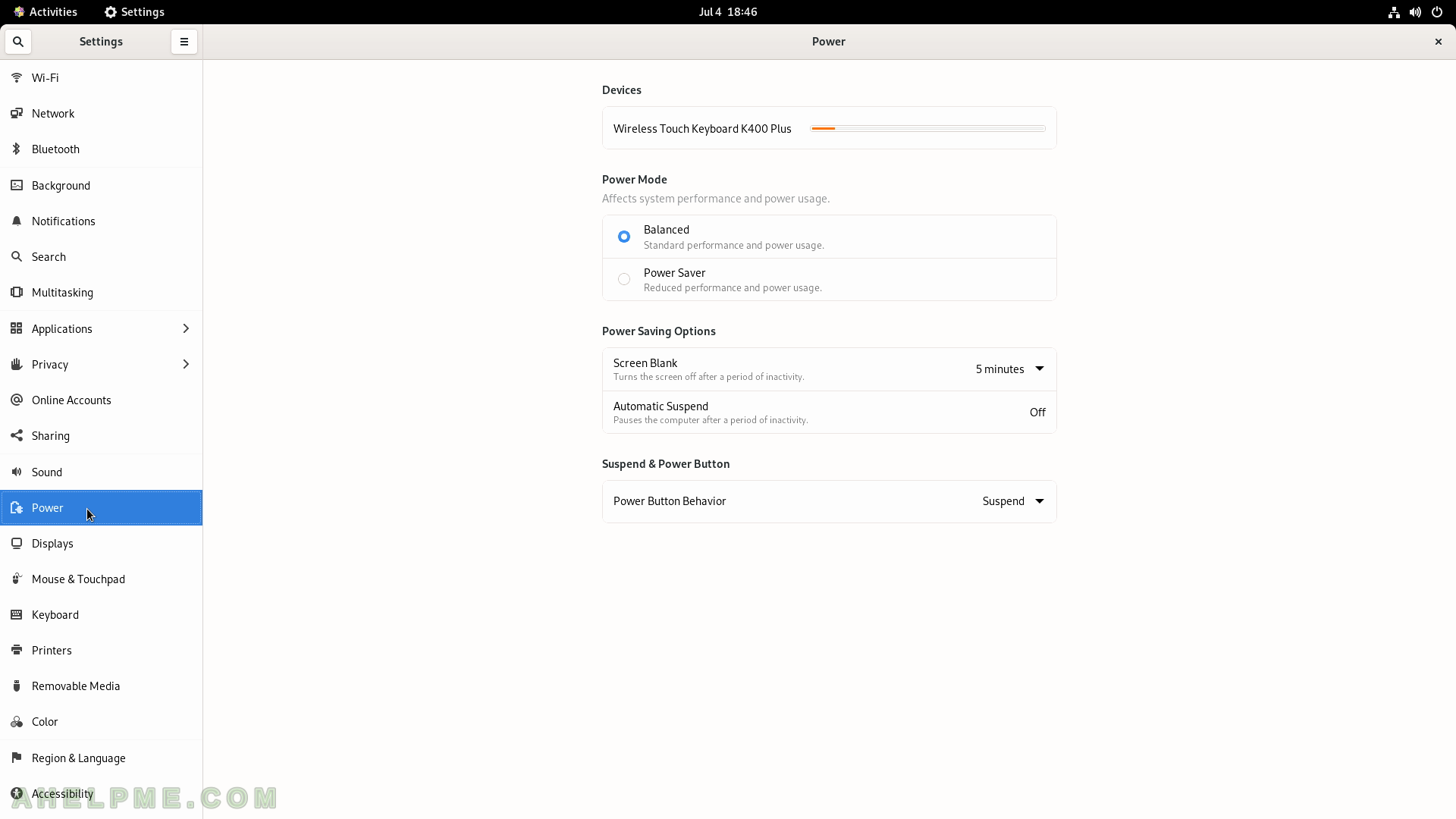SCREENSHOT 101) The location share service – which application may have the ability to access user’s physical location.
By default, none are included.
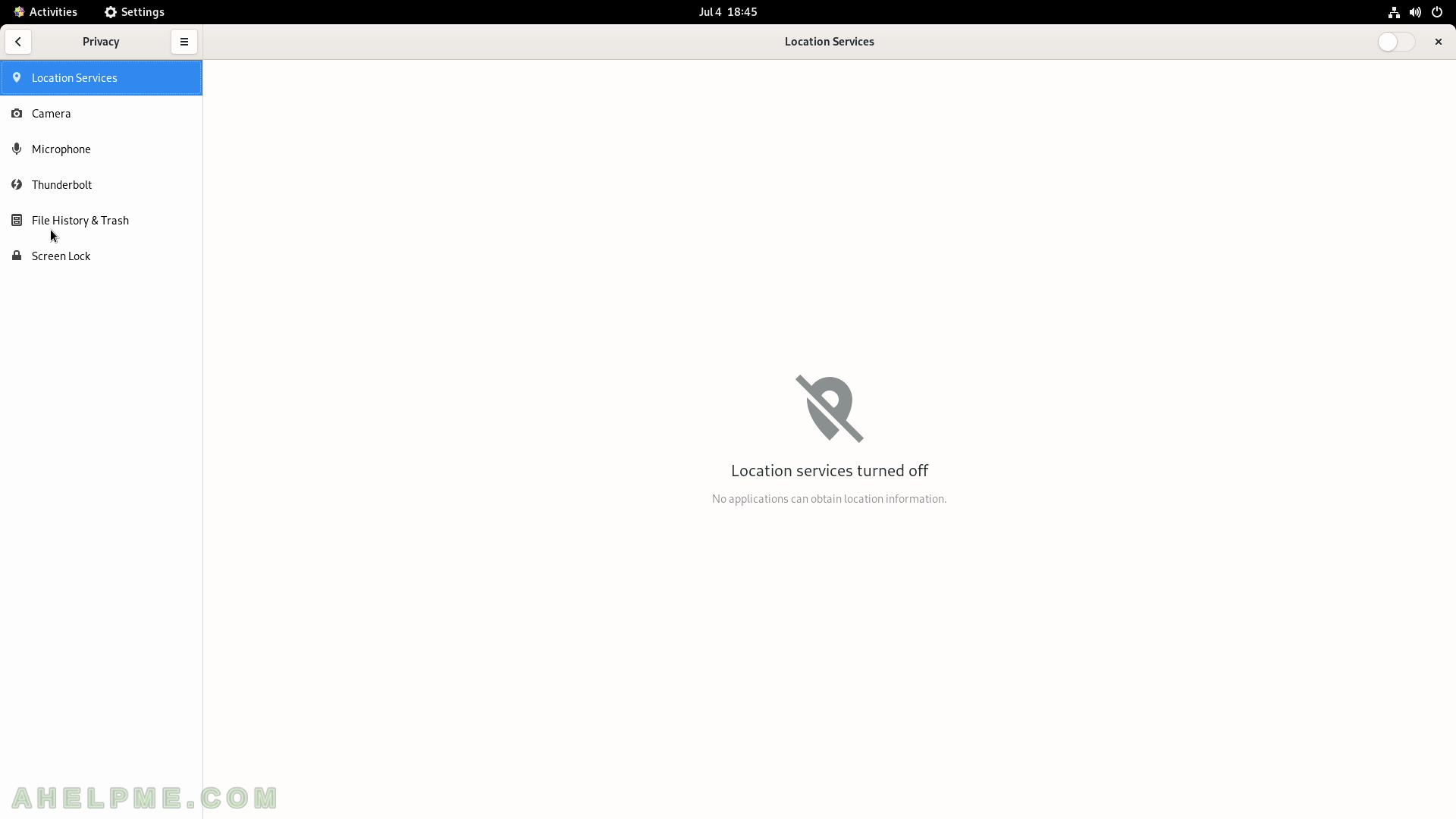
SCREENSHOT 102) Which application may have the ability to access user’s camera.
By default, none are included.
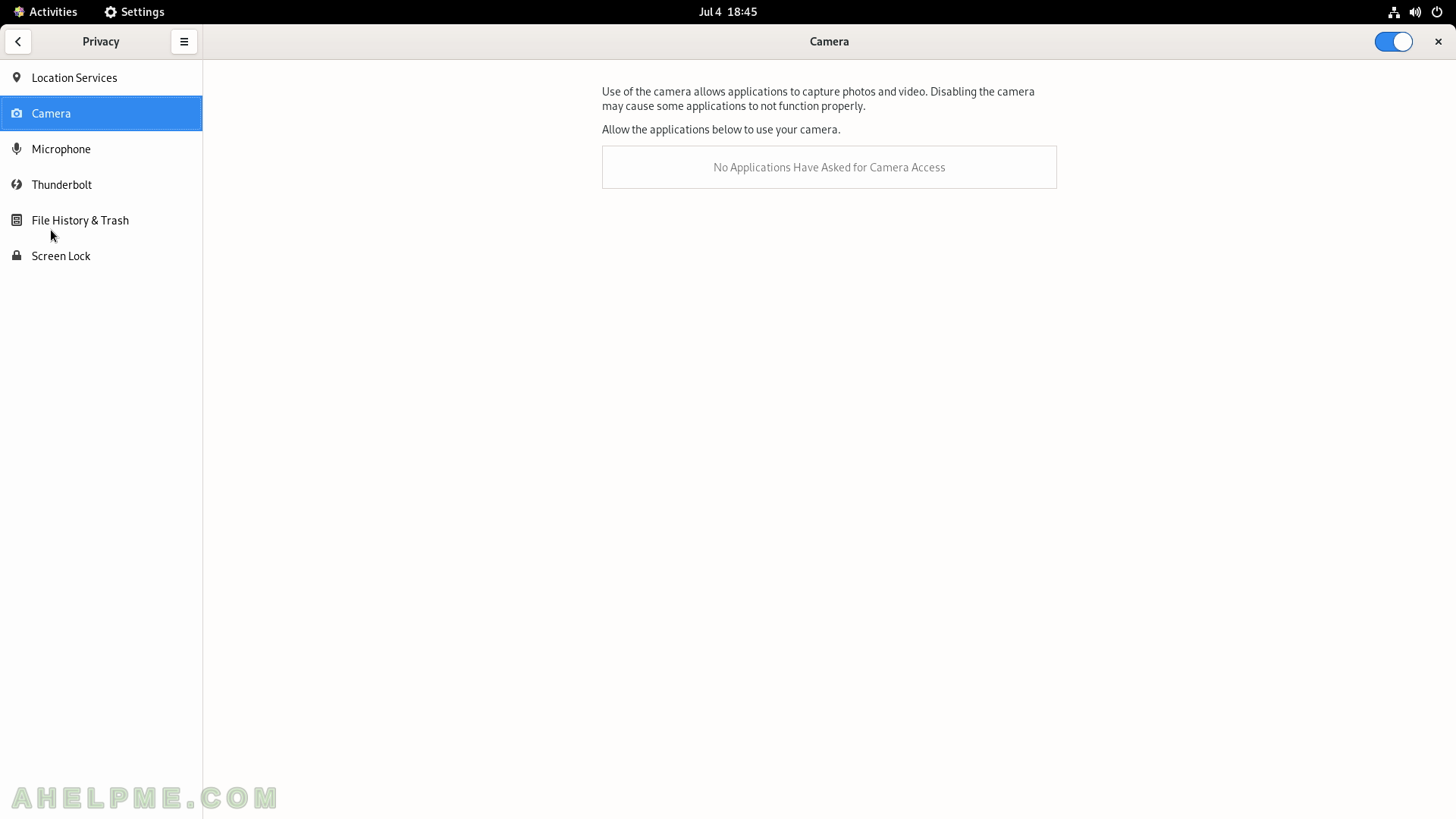
SCREENSHOT 103) Which application may have the ability to access user’s microphone.
By default, none are included.
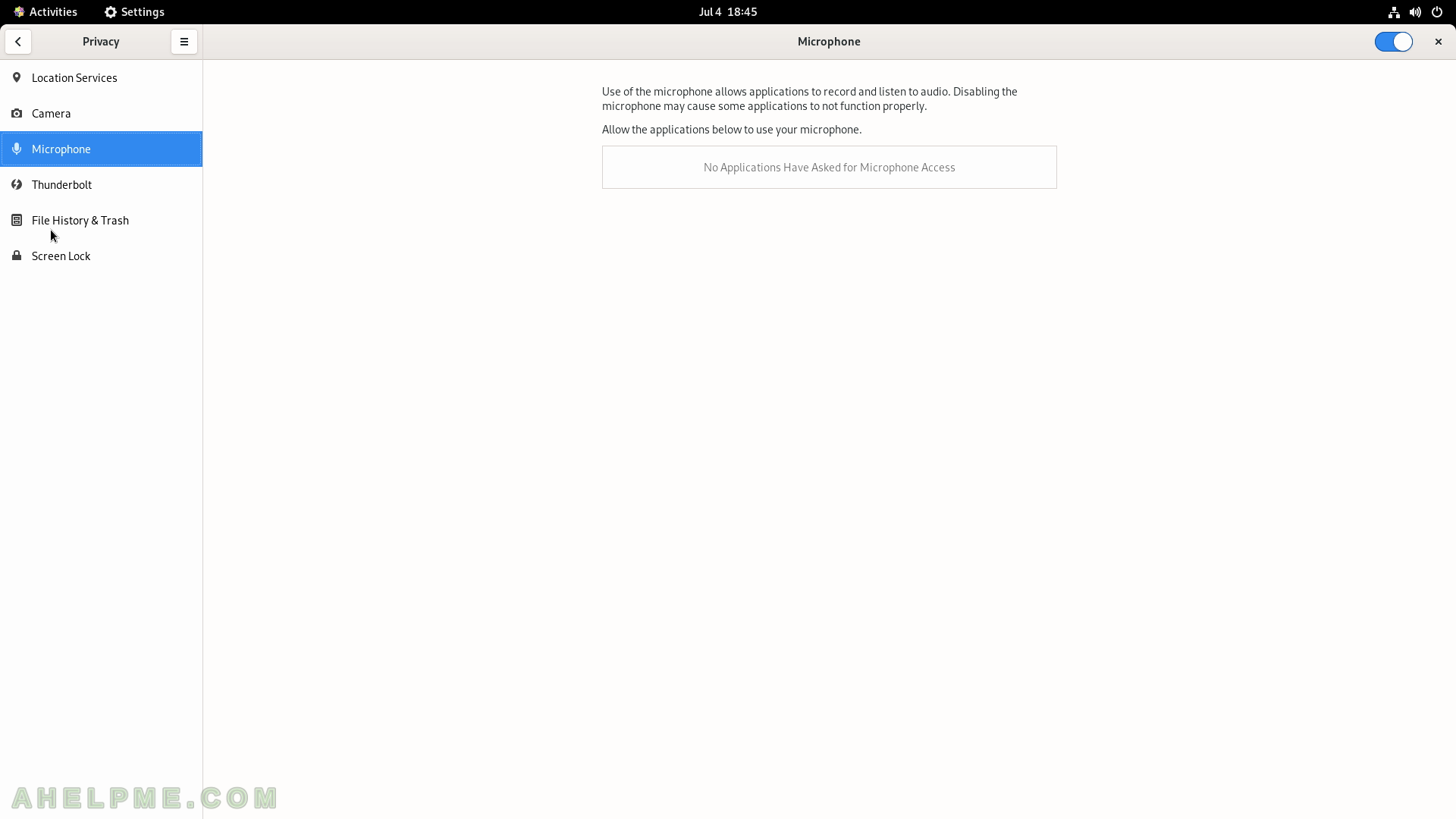
SCREENSHOT 104) Thunderbolt Privacy settings.
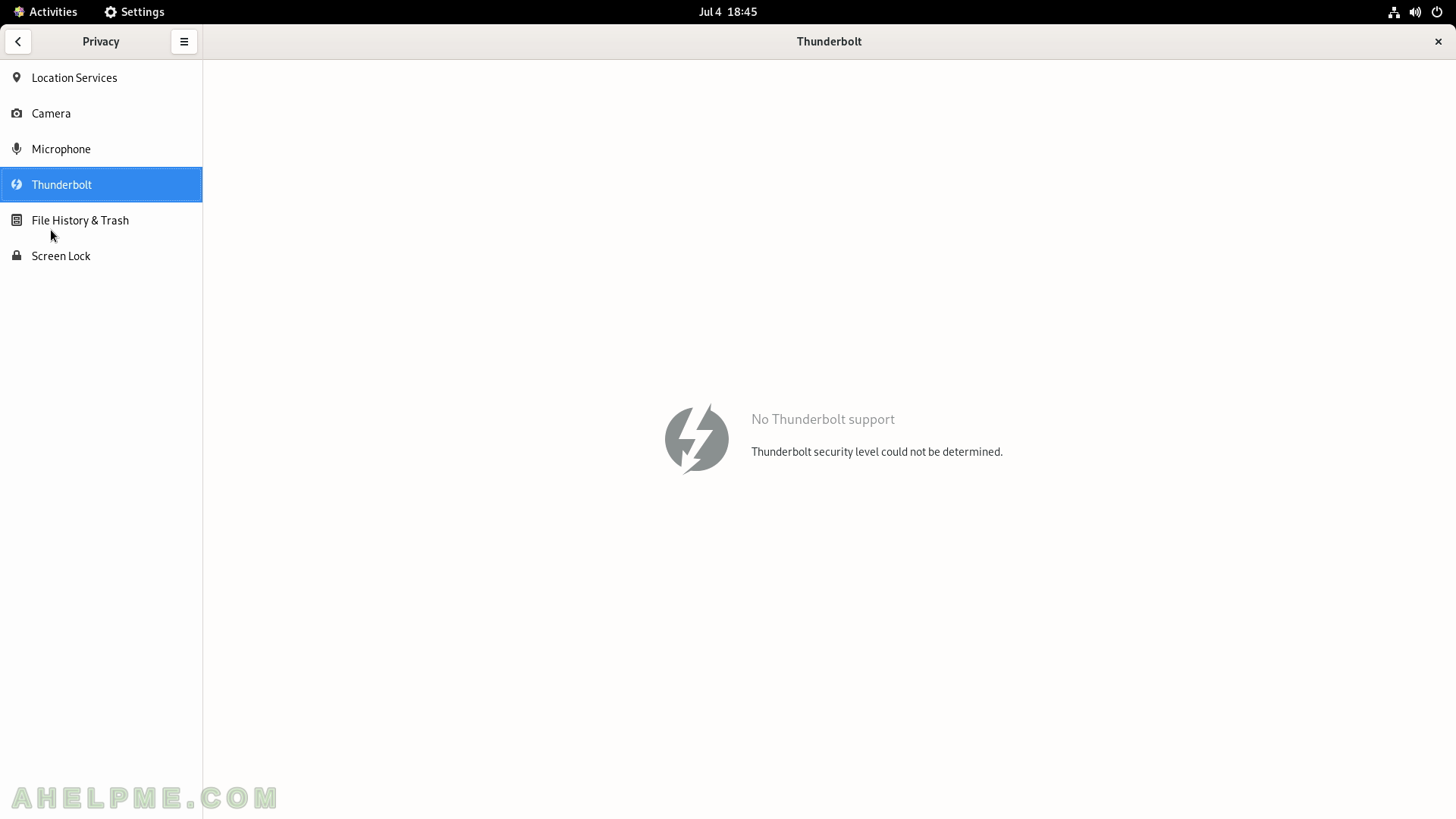
SCREENSHOT 105) File history service keeps a record of files the user have used for a period of time.
Mainly used for e better searching. In this section, the time to keep the files in the trash, could be changed. By default, the files in the trash are kept 30 days.
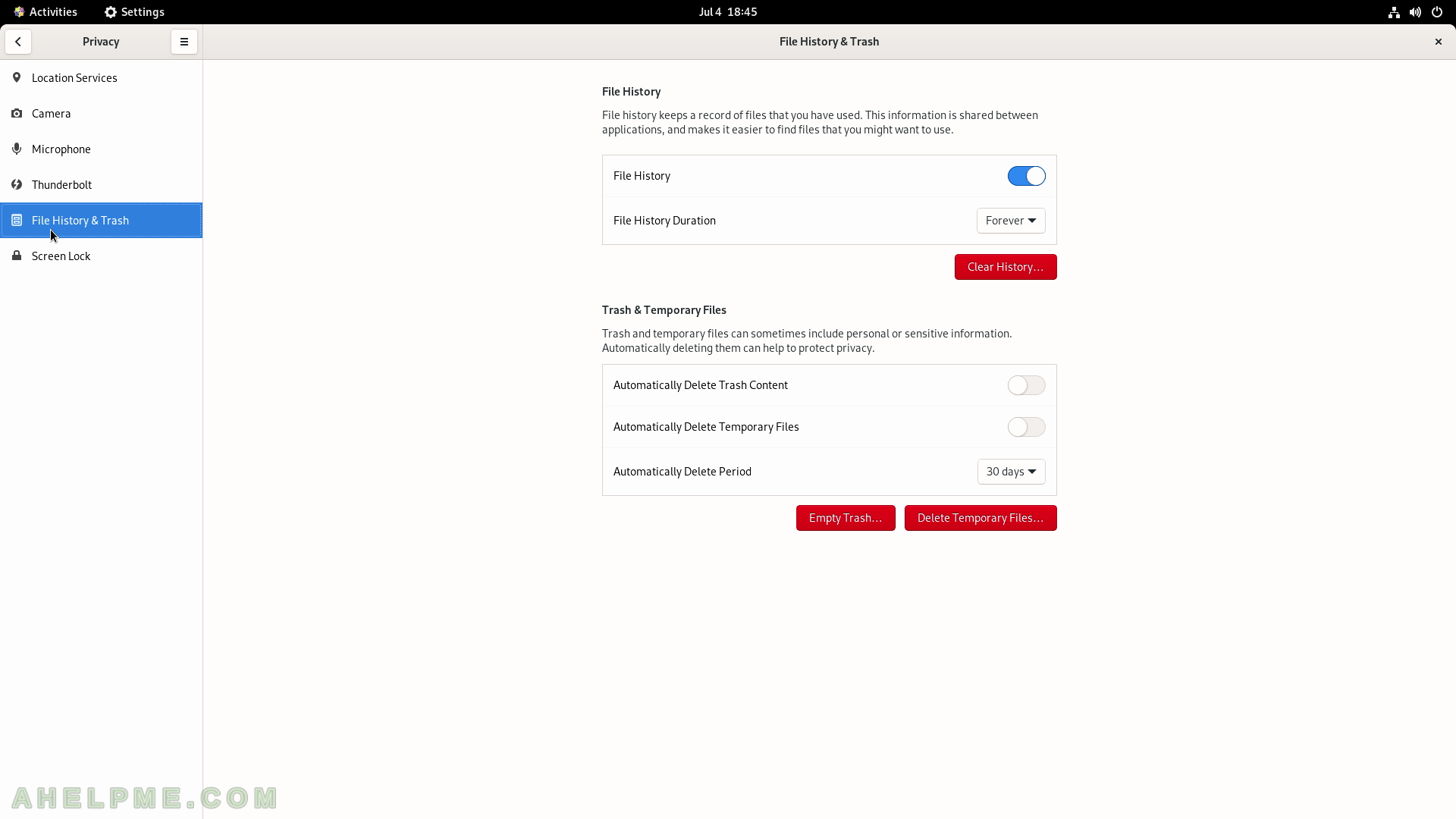
SCREENSHOT 106) Screen Lock – automatically locking the screen when there is a period of user inactivity to prevent others from accessing this computer.
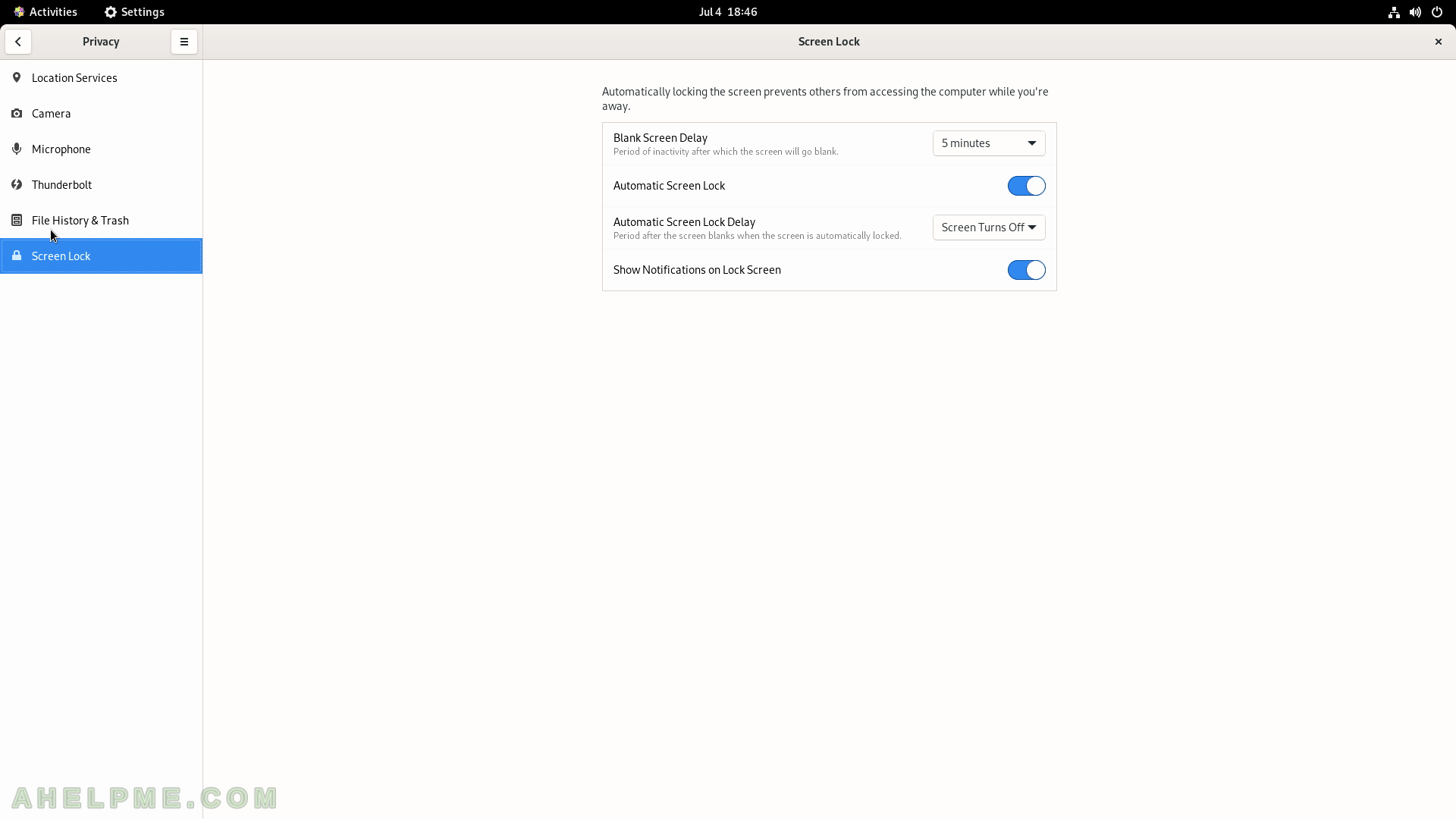
SCREENSHOT 107) Cloud and email services integrated in CentOS Stream 9 Linux.
CentOS Stream 9 Workstation supports Google, Nextcloud, Microsoft, Microsoft Exchange and Fedora.
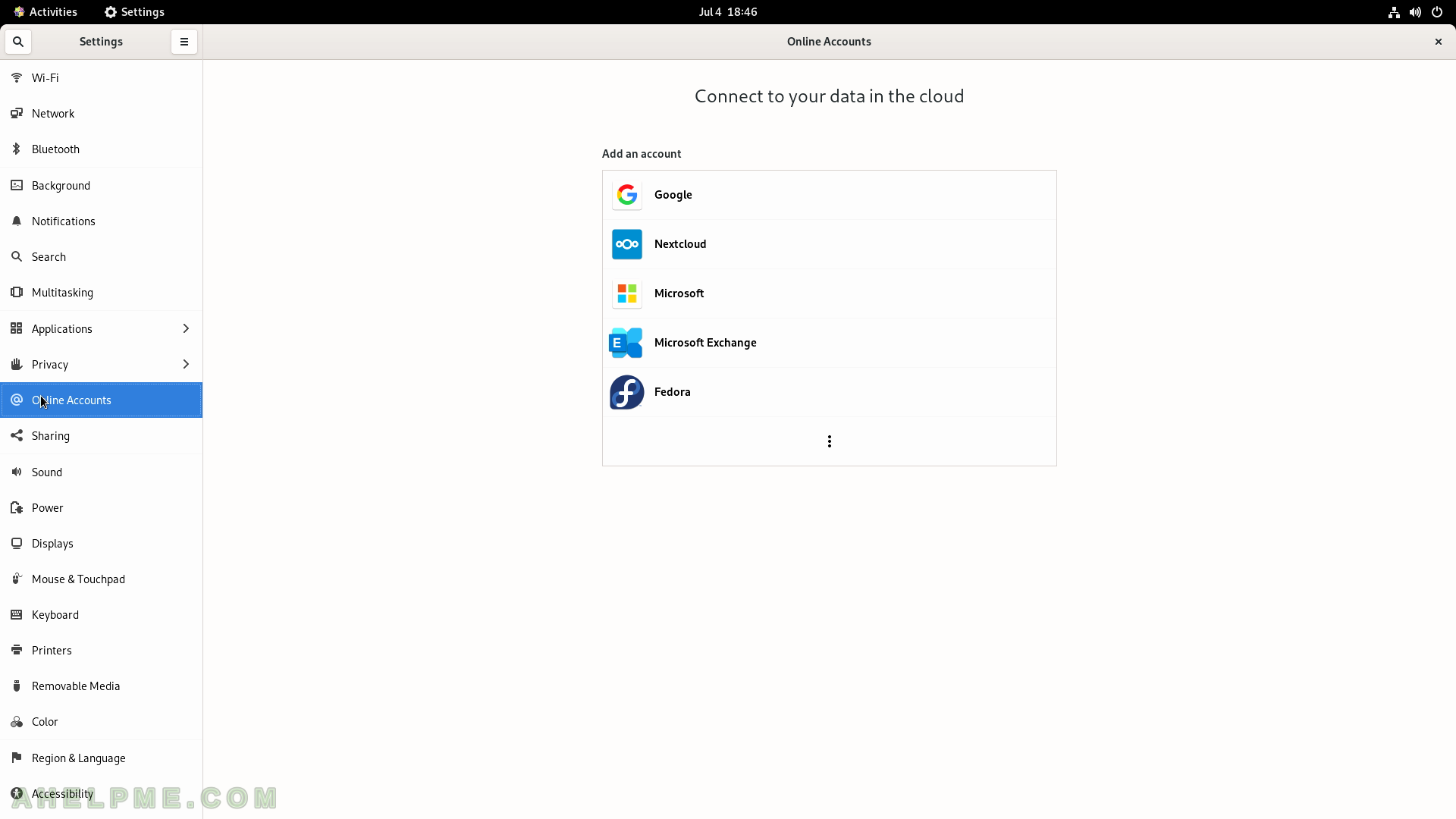
SCREENSHOT 108) Two types of sharing are available – Screen Sharing and Remote Login.
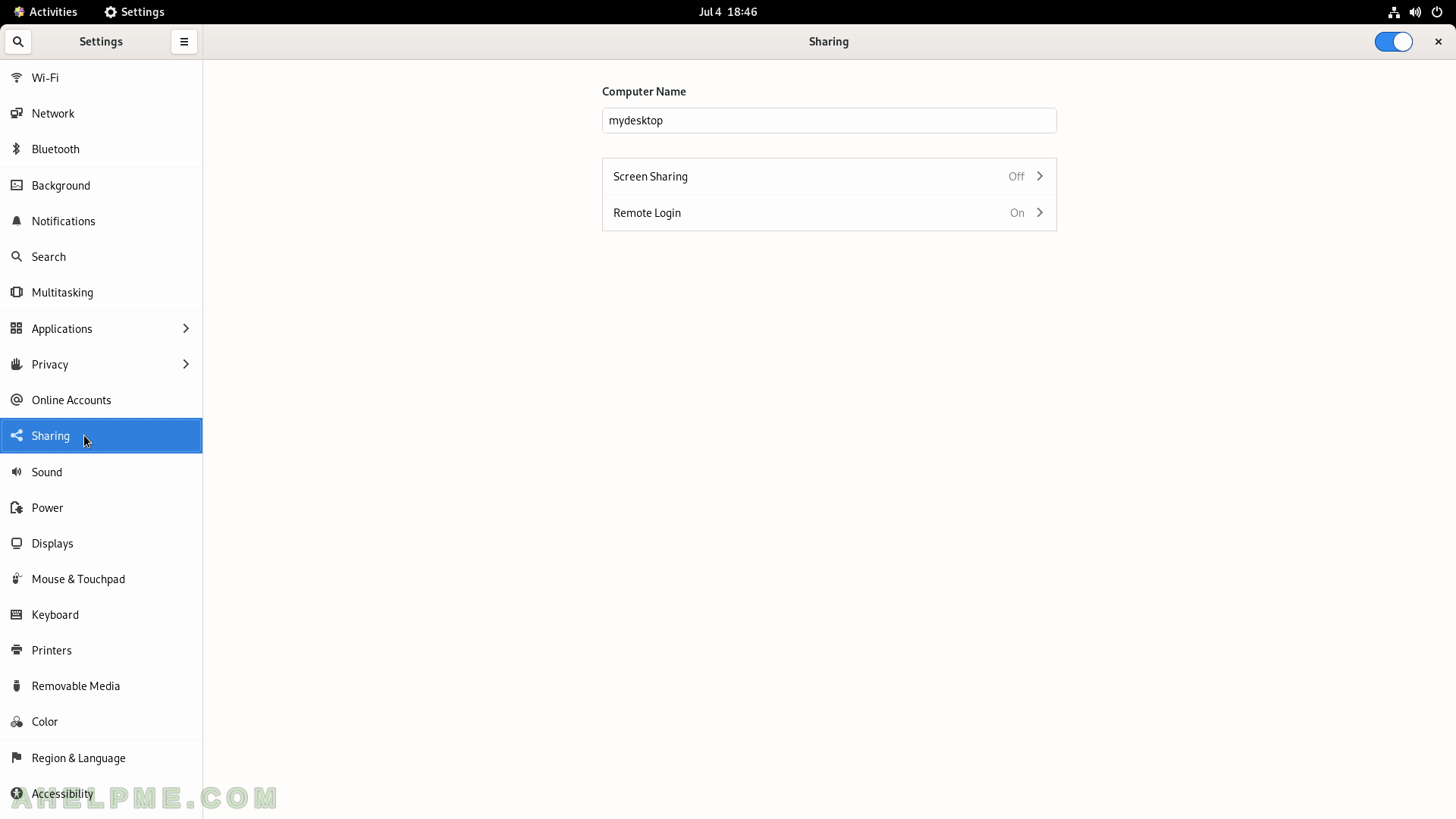
SCREENSHOT 109) Sound system configuration.
System volume, Volume Levels, Input, Output and Alert Sound.
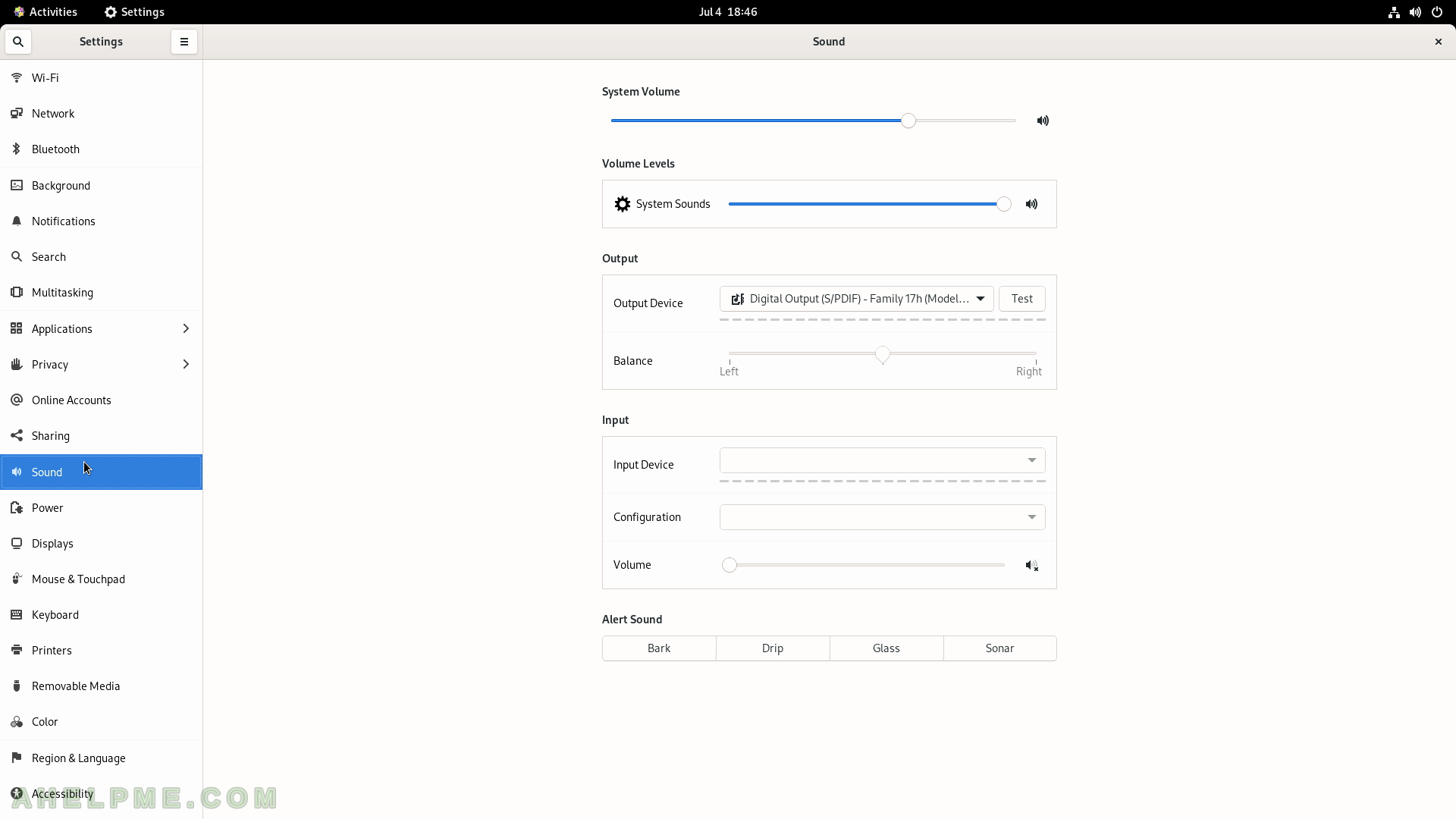
SCREENSHOT 110) Devices, Power Saving – what to do in the different levels.
Suspend and Power saving options. Some devices like mouses and keyboards, which supports power reporting may also be configured.
